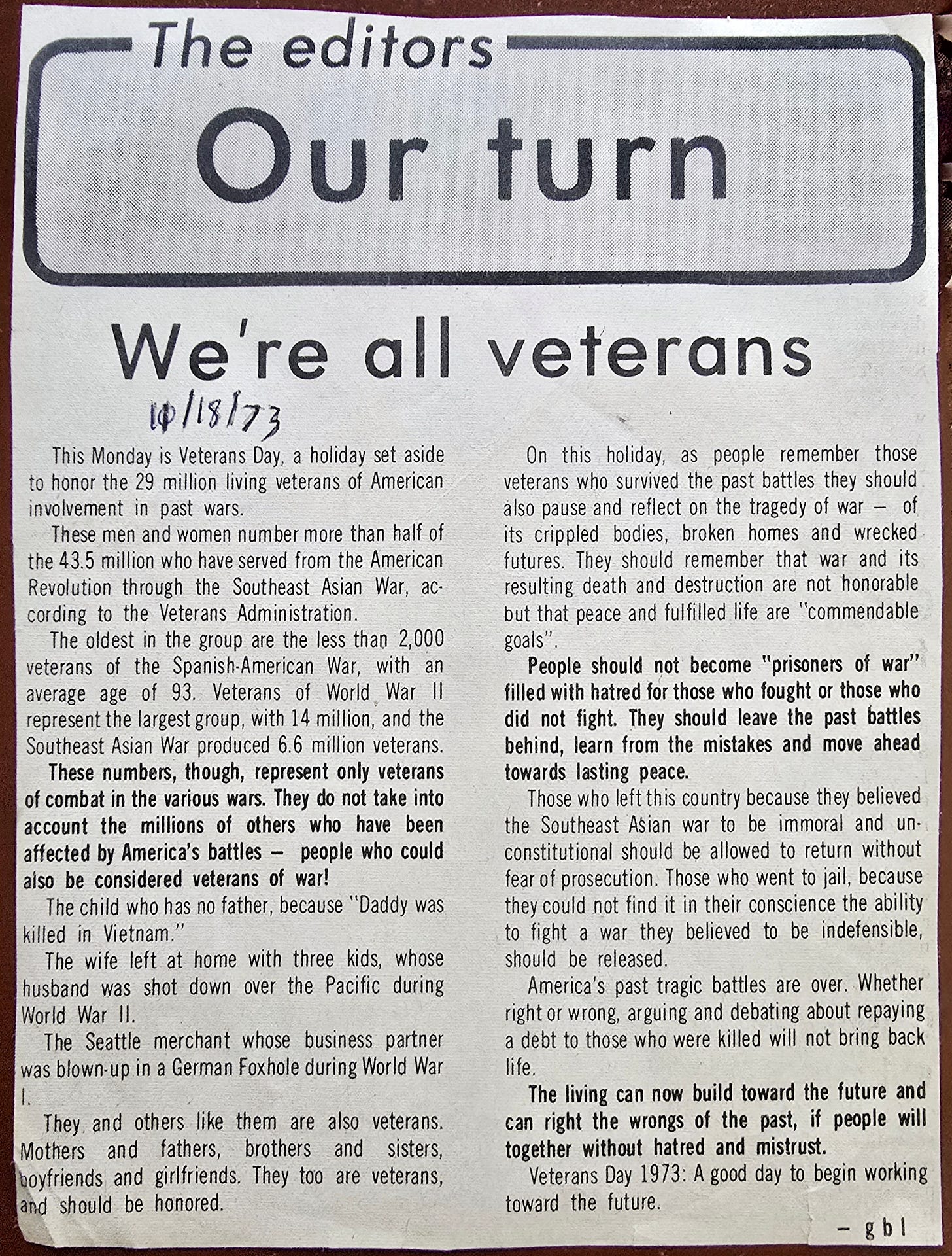✍️ We’re All Veterans, Still
An updated look at war’s toll—and our duty to prevent it.

This Tuesday, Nov. 11, is Veterans Day, a holiday set aside to honor the nation’s 18 million living veterans—men and women who have served in the U.S. armed forces.
These veterans represent a fraction of the roughly 41 million Americans who have served—by today’s updated counting methods—since the Revolutionary War, according to the U.S. Department of Veterans Affairs.
The oldest among them are the remaining veterans of World War II—fewer than 100,000 still living, their average age now past 95. Veterans of the Vietnam War number about 6 million, while Gulf War–era veterans—those who served from 1990 through today’s conflicts—make up the largest group, at about 8 million.
Those numbers, though, represent only people who served in uniform in the various wars. They do not take into account the millions of others who have been affected by America’s battles—people who could also be considered veterans of war.
The wife left at home with three kids whose husband was shot down over the Pacific during World War II.
The child who has no father because “Daddy was killed in Vietnam.”
The shop owner whose business partner, a Guard reservist, was killed by a roadside bomb in Afghanistan.
They, and others like them, are also veterans—mothers and fathers, brothers and sisters, partners and friends. They, too, are veterans and should be honored.
Besides those wars, the list has grown elsewhere—Lebanon, Grenada, Panama, the Persian Gulf, Somalia, the Balkans, Iraq, Syria. The toll continues, even in years we claim peace.
On this holiday, as people think about those who survived the past battles, they should also pause and reflect on the tragedy of war—its crippled bodies, broken homes, and wrecked futures.
They should remember that while military service is honorable, war itself, with its death and destruction, is not. Peaceful conflict resolution and fulfilled life remain truly commendable goals.
After Vietnam, the draft ended. Good. And in 1977, President Jimmy Carter granted amnesty to people who resisted the Vietnam draft. Also good.
The all-volunteer force that replaced the draft has changed the country’s relationship with war. Many Americans now praise “the troops” but rarely meet them. Military service has become a profession, not a shared civic burden.
That distance may have made it easier for the nation to drift into new wars. When only volunteers fight, the rest of us can look away. But we’re all veterans of the decisions made in our name—and we share the responsibility to question them.
People should not become prisoners of war in another sense—trapped by hatred or hardened by division. They should leave the past battles behind, learn from mistakes, and move ahead toward lasting peace.
The living can now build toward the future and can right the wrongs of the past—if people come together without hatred and mistrust.
Veterans Day 2025: still a good day to begin shaping a lasting peace.

